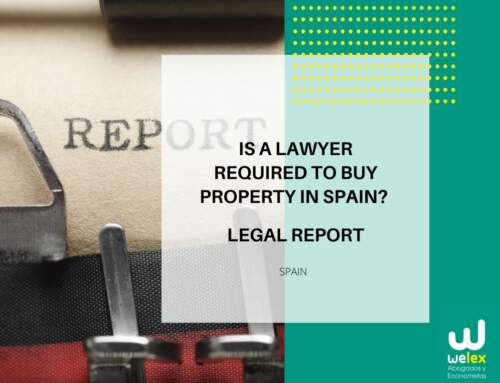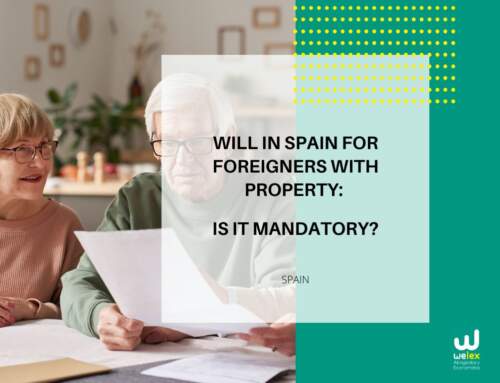The position of president in a community of owners in Spain is a potentially inexhaustible source of conflicts. We find that communities exist where everyone wants to hold the position of president because they think that the president will be able to control and dictate the direction in which the community will go. However, much more common is the situation where no one wants to accept the responsibility.
First, we will define, in accordance with the law, what the position of president in the community of owners really means and what responsibilities are associated with the position.
Article 13.3 of the Spanish Horizontal Property Law defines the president as a co-owner, who will legally represent the community both in a court and outside of one in regards to all legal matters that might potentially affect the community.
These are some of the assumed responsibilities of the president:
1- The president is responsible for calling the meetings and for signing the minutes, which is usually done in conjunction with the secretary and / or the administrator.
2- When there is a sale of a property, or a debt certificate is needed, even if the secretary-administrator drafts the debt certificate, the President must give it his final approval.
3- In the event that there are neighbours that must be reprimanded, the president would be responsible for addressing them on behalf of the entire community.
4- Also, the president together with the secretary-administrator takes care of the payments and the bank accounts of the community and makes decisions based on the votes cast by the assembly of owners according to Spanish law.
The president must not forget that he always must act as a representative of the community and must abide by whatever was agreed upon by the members, who attended the meetings. If the president exceeds these responsibilities or the functions of the role or acts unilaterally and thereby harms the general interests of the community, the other owners in the community could proceed with legal actions against him/her in court.

How a president of a community of owners is chosen in Spain?
The president is appointed by a majority vote at a general meeting of owners, which is normally the annual general meeting. However, should it be necessary, the president can be elected at a specially held meeting as well. If no one volunteers to be president, someone can be assigned to serve based on a rotation of the owners or based on a rotation by lot number. In practice, if there are no volunteers, one property will be chosen by lottery to begin the rotation, and the decided upon order will be followed thereafter. If in a particular year, there is a volunteer, and he/she is voted in as president, the rotation will temporarily stop. The next time that there are no volunteers, the rotation will continue from the place it stopped. All of the elections must be conducted under the agreement of the assembly of owners.
One question that often arises is should the owner of several properties be required to serve as president for multiple rotations? Typically, the answer is no; the rotation is usually based on owners, not on the number of properties the individual owns within the community.
Accepting the position of president is a legal obligation, but the law also provides for some possible exemptions. This makes it possible for the neighbours to agree upon whether or not to exempt any of the owners from the obligation of the position, which might be done for reasons of age or illness. Ultimately, if no agreement is reached between the neighbours, the owner elected president can request that a judge excuse him/her from the position as well.
Here are some other typical questions we hear in regards to the role of president.
“I am a tenant in the building; can I be president?” “I have a property in the community, but I live 300 miles away. Can I still serve as the community’s president?”
The only requirement for becoming the president of a community is to be an owner of a property in the community. It is not a requirement for you to live there. The tenants in the buildings have no rights or votes at the meetings despite living there. The children of the owners cannot be president either. It is not unusual for a son or daughter of an owner to live on the property, and they might want to serve in the position in order to release their parents from the obligation. However, the Horizontal Property Law (LPH) does not allow for this delegation of responsibilities. Some of the paperwork can be delegated because it would be difficult for the law to enforce a rule that forbids that. The position itself however cannot be delegated, so the legitimate President must sign any acts or contracts in order to legally represent the community, and their children cannot sign on their behalf.
Can a company serve as president of a community in Spain?
There are communities where a development company owns some of the homes. As an owner, the development company could be president, but it will have to exercise that presidency by appointing one person, who will serve as its legal representative. The company cannot be president since only an actual person can be. The legal representative would be given power of attorney; that individual would be able to exercise the presidency.
Could an owner that has debts owed to the community act as its president? Yes, although it might seem illogical. The LPH regulates that the only requirement to qualify you to serve as president is to own a property in the community. If the president is in debt, he/she will still have to lead the assembly and all of the community’s meetings even though he/she may not be able to vote because of the debt. Of course, the individual would always be able to express his/her opinions in the meetings before the vote.
Do not hesitate to contact our law firm in Marbella if you own a property in Spain and have legal questions regarding the operation of your community of owners. We would be happy to provide advice and counsel regarding your rights.






Social Media